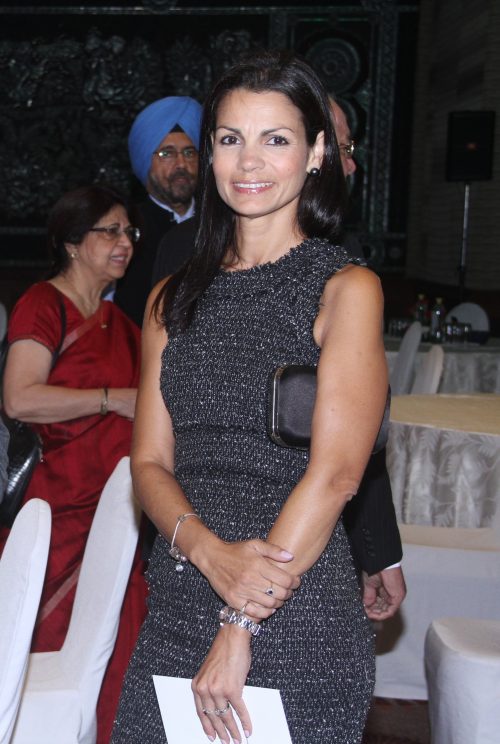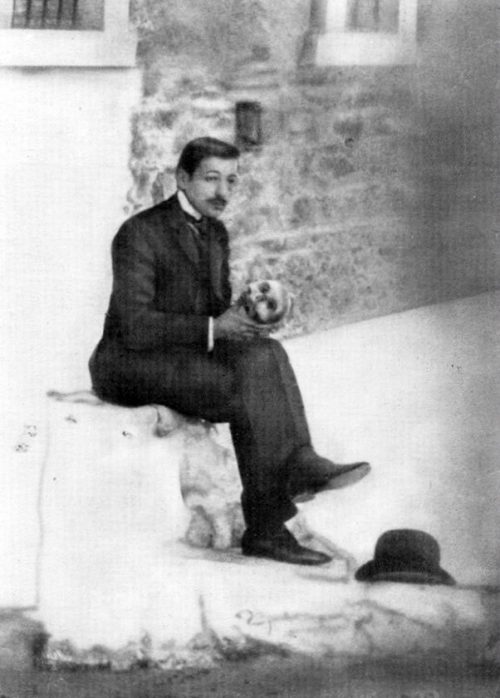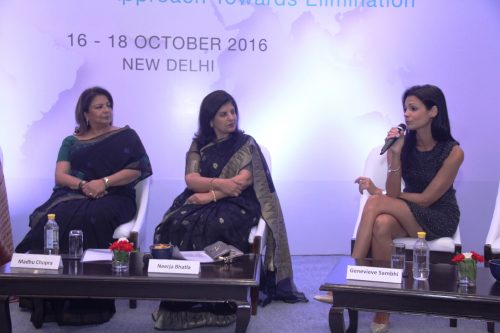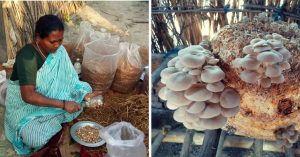After Beating Cervical Cancer, This Survivor Is Helping Others Do the Same
Cervical cancer is one the biggest killers in modern India, yet few women are willing to discuss it openly. A cancer survivor is hoping that talking about her story will encourage more women to come forward and fight against this preventable and curable scourge.

Cervical cancer is one the biggest killers in modern India, yet few women are willing to discuss it openly. A cancer survivor is hoping that talking about her story will encourage more women to come forward and fight against this preventable and curable scourge.
Ever since Genevieve Sambhi, 45, managed to survive cervical cancer seven years ago, she has taken it upon herself to talk about the disease, and caution and counsel other women about it. She wants to tell them that regular screening, early discovery, and proper treatment can be help them fight it successfully. After all, it was an annual test that had revealed her condition in 2009.
A former Miss Malaysia and a well-known model in her country, Sambhi was in India to participate in an international conference on the prevention and control of cervical cancer held in New Delhi recently. Apart from emphasising the need to spread greater awareness, she has suggested the creation of a “global family of cervical cancer survivors who can reach out to other women to say that cervical cancer can be prevented and can be cured in a world where more than one million women are currently living with the disease.”
As per projections of the Indian Council of Medical Research (ICMR), a premier medical research body in the country, India is likely to have over 17.3 lakh new cases of cancer by 2020, with cancers of breast, lung, and cervix topping the list. Cancer of the cervix is the third-most common cancer, with an estimated one lakh new cases in 2016.
The numbers are so high because few cervical cancer survivors address the issue in public.

Despite the fact that both her parents are medical professionals – her father is a gynaecologist while her mother is a nurse – Sambhi points out that even she had no idea that all women are at risk of having cervical cancer, or that early detection can save lives. “If I did not know anything about this cancer, imagine the plight of others,” she remarks. Sambhi was diagnosed early, and after treatment, which included rounds of chemotherapy, she is now cancer-free. It is sad but true that not many women know about the importance of early detection, and even fewer go for a regular check up to a gynaecologist or for vaccination.
Soon after her treatment, the National Cancer Society Malaysia asked her to become an ambassador for an awareness campaign. She has been openly sharing her experience for over half a decade. Incidentally, she has founded a cervical cancer survivors’ group in the Malaysian capital of Kuala Lumpur, and regularly appeared on television and radio to talk about her ordeal.
Yet, a mere four members of the survivors’ group have come forth so far to have a talk about the disease.

“It is this veil of silence that continues to kill,” says Sambhi, who would like cervical cancer survivors to be as organised and as vocal as breast cancer survivors. She reiterates that it “is crucial to understand that even though cervical cancer is the second-most common type of cancer suffered by women worldwide, it is also one of the most treatable and preventable cancers”.
Effectively, regular pap smears and vaginal examinations are all that women need to save lives. So it’s imperative to spread the word that any discussion about cervical cancer is about prevention of the disease and genital hygiene, and not about sexual promiscuity. But women continue to remain hesitant to discuss it as it is a sensitive issue and they often confuse it with “sex talk”. In fact, women are ashamed to talk about their body, particularly those who hail from traditional homes.
That’s also why a majority of women never go for a vaginal check-up or a pap test, which is the screening procedure for detecting cancerous cells and named after Georgios Papanikolaou, the doctor who first concluded that the test was a useful way to discover signs of cervical cancer.

Experts claim that vaccinating girls in their teens and before they get sexually active can prevent the disease. The vaccine is a protection against the virus that is responsible for 70 % of cervical cancers. However, due to ignorance and cultural reasons, parents do not vaccinate their daughters. The result is that doctors detect most cases by the time it is too late.
A short film screened during the conference asked Indian women of different ages the simple question, “What is a cervix?” Most did not know the answer. The cervix is the lower part of the uterus that produces some of the moistness that lubricates the vagina. Since cervical cancer develops in stages, a regular pap test is valuable for early detection.
Women between the ages of 35 and 65 and those from lower socio-economic groups are most at risk.

Greater social awareness can break down the cultural barriers that prevent women from going in for regular screening and vaccination. Often, patients also do not have access to health services for prevention, curative treatment, or palliative care. This is important especially in a country like India where this disease kills a woman every eight minutes. This is a great tragedy, particularly when the disease is not only preventable but also curable.
Cervical cancer affects women everywhere, but mostly in low- and middle-income countries, where healthcare facilities are not easily available. Today, over 65 countries have introduced national programmes for vaccinations, screenings, and treatment. India needs to do the same. To safeguard themselves, women need immediate access to services that are affordable and equitable. It will help save millions – because women’s lives do matter.
To know more about cervical cancer and how to fight it, visit the website of the National Cancer Institute.
Featured image is for representation purposes only. Source: Flickr
Like this story? Or have something to share? Write to us: [email protected], or connect with us on Facebook and Twitter.
NEW: Click here to get positive news on WhatsApp!
This story made me
- 97
- 121
- 89
- 167
Tell Us More
We bring stories straight from the heart of India, to inspire millions and create a wave of impact. Our positive movement is growing bigger everyday, and we would love for you to join it.
Please contribute whatever you can, every little penny helps our team in bringing you more stories that support dreams and spread hope.



















